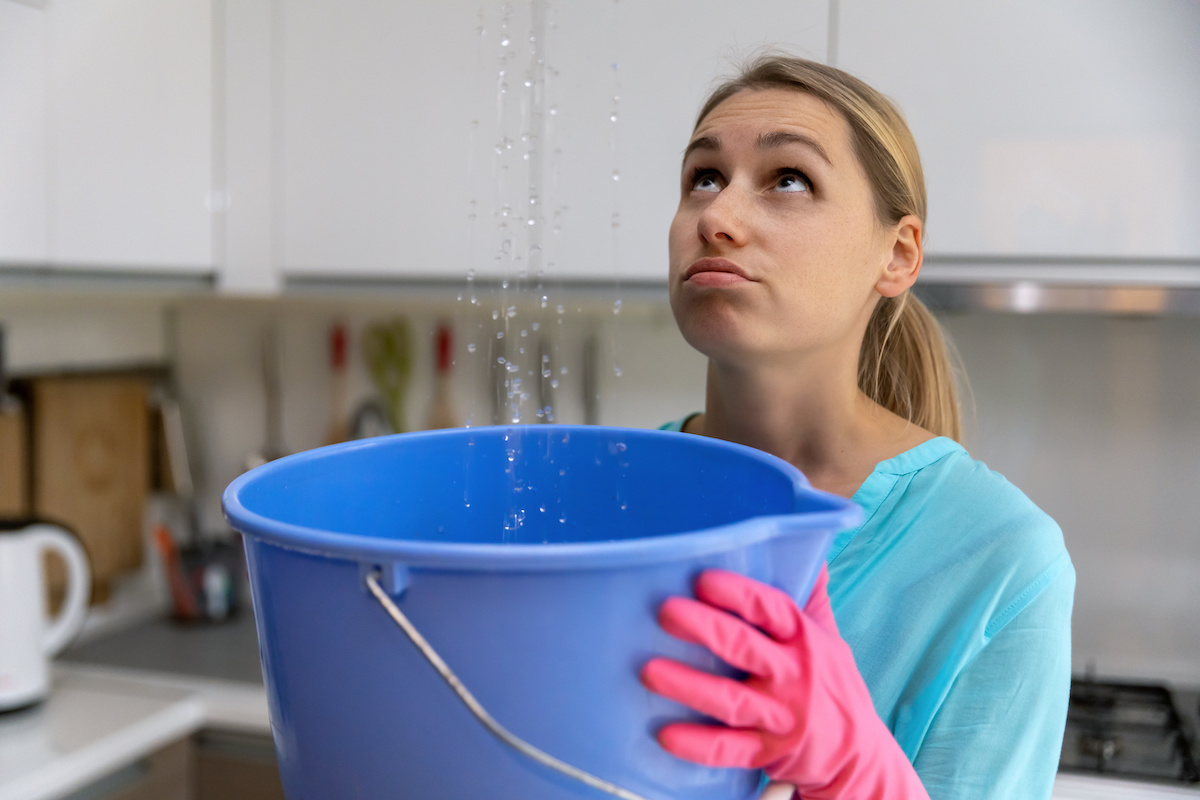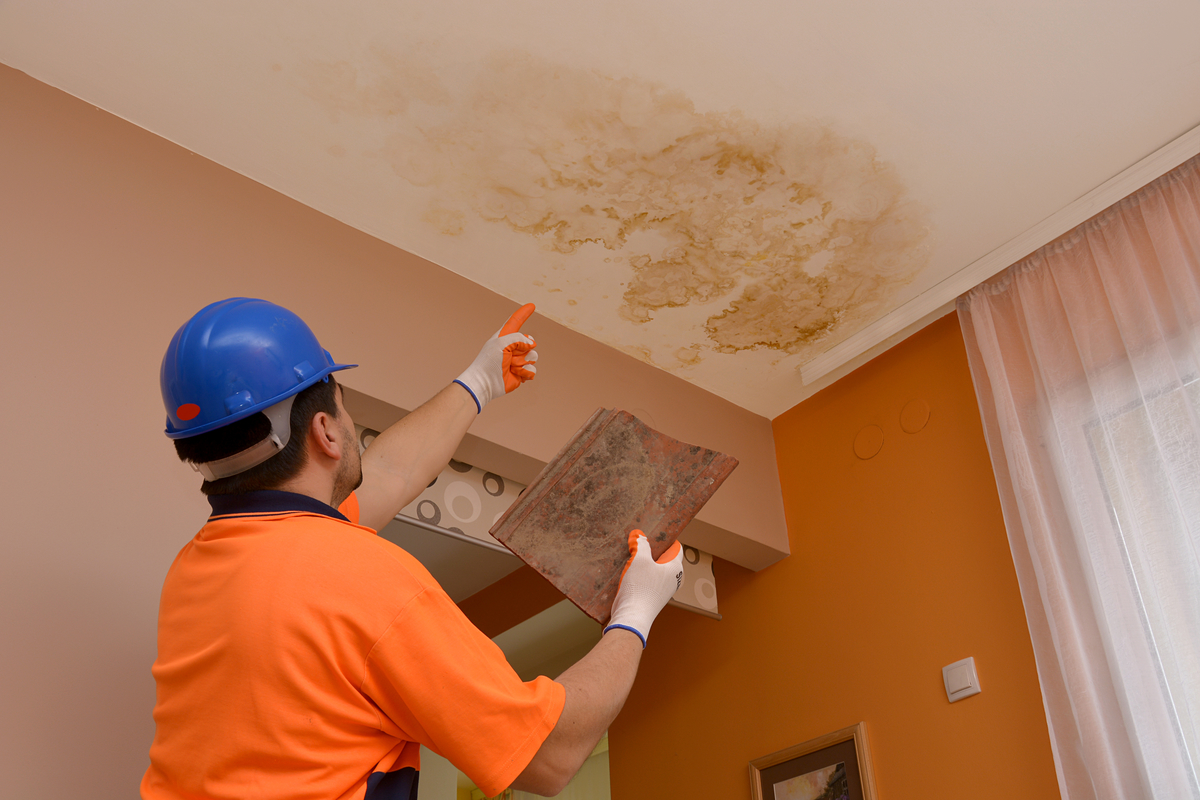Pinpoint Why Water Drips in Your House
Pinpoint Why Water Drips in Your House
Blog Article
Do you find yourself looking for advice about Common Water Leaks In House?

Leaks not only cause waste of water but can additionally create unnecessary damage to your home as well as promote unwanted natural development. Water leakages may go undetected given that most of the pipework in our residence is concealed. By comprehending and looking for everyday circumstances that cause leakages, you can secure your residence from future leaks and unnecessary damage. Today, we will certainly consider 6 leakage creates that might be causing your pipelines to drip.
Instant temperature modifications.
Severe temperature level changes in our pipes can trigger them to broaden and also get all of a sudden. This expansion as well as contraction might create splits in the pipelines, especially if the temperature are below freezing. If you kept an eye on exactly how your plumbing works, it would be best. The presence of the formerly stated circumstances regularly suggests a high danger.
Rusty water supply
As time goes by, your plumbing system ages and also rust such as corrosion may begin eating away the pipes. This might be the cause of discoloration or warping on your pipes. This asks for an assessment with your plumber promptly. If our plumbing system is old, take into consideration replacing the pipes considering that they go to a greater threat of deterioration than the more recent versions.
Malfunctioning Pipe Joints
Pipeline joints can weaken over time, resulting in water leakages. If you have loud pipelines that make ticking or banging noises, particularly when the warm water is turned on, your pipeline joints are most likely under a whole lot of pressure.
Elbowing in origins
Most water leaks begin outside your house as opposed to inside it. If you see an abrupt decline in water stress, state in your tap, take time to go out and also analyze your yard. You might see damp patches or sinkholes in your yard, which may mean that tree origins are getting into water lines causing water to permeate out. You can have your plumber check for breach, particularly if you have trees or shrubs near your home.
Poor Water Connectors
Sometimes, a leak can be triggered by loose tubes as well as pipes that provide your devices. More often than not, moving is what creates the loose water Connections. You could locate in the case of a cleaning maker, a hose pipe might spring a leakage because of trembling during the spin cycle. In case of a water links leakage, you might discover water running directly from the supply line or puddles around your appliances.
Obstructed Drains
Blocked drains could be annoying and also inconveniencing, but they can sometimes end up creating an overflow causing burst pipes. Maintain eliminating any kind of materials that might drop your drains that might obstruct them to prevent such troubles.
All the above are reasons for leaks yet not all water leaks result from plumbing leakages; some leakages could originate from roofing system leakages. All leakages need to be fixed instantly to prevent water damage.
Leaks not only trigger waste of water however can also create unnecessary damages to your residence as well as promote unwanted organic development. By understanding and also looking for day-to-day situations that create leaks, you can shield your residence from future leakages as well as unnecessary damages. Today, we will certainly look at six leakage triggers that may be causing your pipelines to leak.
At times, a leak can be created by loose tubes as well as pipes that provide your appliances. In instance of a water connections leakage, you may see water running directly from the supply line or pools around your appliances.
How To Check For Water Leak In Your Home
How To Check for Leaks
The average household's leaks can account for nearly 10,000 gallons of water wasted every year and ten percent of homes have leaks that waste 90 gallons or more per day. Common types of leaks found in the home are worn toilet flappers, dripping faucets, and other leaking valves. These types of leaks are often easy to fix, requiring only a few tools and hardware that can pay for themselves in water savings. Fixing easily corrected household water leaks can save homeowners about 10 percent on their water bills.
To check for leaks in your home, you first need to determine whether you're wasting water and then identify the source of the leak. Here are some tips for finding leaks:
Take a look at your water usage during a colder month, such as January or February. If a family of four exceeds 12,000 gallons per month, there are serious leaks.
Check your water meter before and after a two-hour period when no water is being used. If the meter changes at all, you probably have a leak.
Identify toilet leaks by placing a drop of food coloring in the toilet tank. If any color shows up in the bowl after 10 minutes, you have a leak. (Be sure to flush immediately after the experiment to avoid staining the tank.)
Examine faucet gaskets and pipe fittings for any water on the outside of the pipe to check for surface leaks.
Undetected water leaks can happen without the home or business owner even realizing. If you suspect a water leak, but not able to find the source. It is time to contact a professional water leak detection service, The Leak Doctor.
How To Find a Water Leak In Your Home
https://www.leakdoctor.com/blog/How-To-Check-For-Water-Leak-In-Your-Home_AE197.html

I ran across that post about Most Common Causes of Leaky Pipes when doing research the web. If you please take the opportunity to promote this blog entry if you appreciated it. We take joy in reading our article about How Fast Water Damage Can Ruin Your Home.
Quick resolutions for plumbing disruptions. Report this page